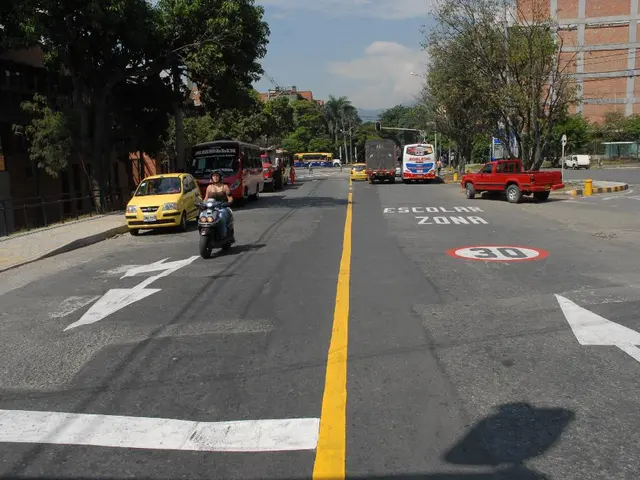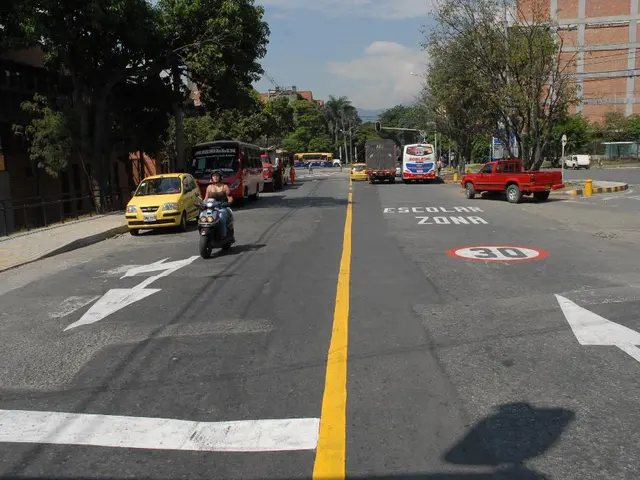Iran announces plans to deploy additional missiles in response to potential future attacks by Israel.
In the Middle East, Iran's missile program is the largest and plays a crucial role in its military strategy. The program, overseen by the Aerospace Industries Organization (AIO), the Islamic Revolutionary Guard Corps (IRGC), and the Self Sufficiency Jihad Organization (SSJO), features a variety of short- and medium-range ballistic missiles that act as a deterrent against regional adversaries such as Saudi Arabia, Israel, the US, and European countries[1].
Following the June 2025 Israel-Iran war, Iran's missile forces were significantly degraded by Israeli strikes. However, recent reports suggest that Iran is receiving assistance from the People's Republic of China to rebuild and reorganize its ballistic missile arsenal, including provision of chemicals and possibly dual-use technology critical for missile production[2]. This cooperation marks a continuation of longstanding Iran-China military-technical collaboration, with China historically supplying missile-related technologies to Iran[2].
The international community, particularly Western and regional powers, has responded firmly. The E3 (United Kingdom, France, and Germany) are pressing Iran to resume nuclear negotiations and comply with restrictions, with a deadline set for August 31, 2025[3][5]. Failure to meet this will likely trigger the United Nations Security Council (UNSC) snapback mechanism, which would reinstate sanctions that restrict Iran's missile program, arms transfers, and nuclear activities[3][5]. The snapback mechanism is due to expire in October 2025, but the E3 seeks to reimpose sanctions promptly to deter further missile and nuclear development[3][5].
The US and its allies emphasize the ongoing strategic importance of sanctions to limit Iran’s missile capabilities, arguing that despite some destruction of Iran's nuclear infrastructure during the recent conflict, pressure through sanctions remains crucial to curb Iran’s military ambitions[4].
The conflict between Iran and Israel, which began in mid-June when Israel launched a bombing campaign against Iran, involved strikes on both military sites and residential areas. The Iranian army is scheduled to begin a two-day military exercise featuring short and medium-range cruise missiles. Iran's first vice-president Mohammad Reza Aref has stated that Iran should be prepared for confrontation at any moment, but no new information about the involvement of the United States in the conflict or the specific capabilities of the new missiles has been provided[1][2][3][4][5].
In summary, the evolving situation reflects both Iran’s strategic reliance on ballistic missiles for defense and deterrence and the intensifying international efforts to restrict its missile and nuclear programs through diplomacy and sanctions enforcement[1][2][3][4][5].
References:
- Al Jazeera
- Reuters
- BBC News
- The Washington Post
- The New York Times
Read also:
- United States tariffs pose a threat to India, necessitating the recruitment of adept negotiators or strategists, similar to those who had influenced Trump's decisions.
- Weekly happenings in the German Federal Parliament (Bundestag)
- Southwest region's most popular posts, accompanied by an inquiry:
- Discussion between Putin and Trump in Alaska could potentially overshadow Ukraine's concerns








